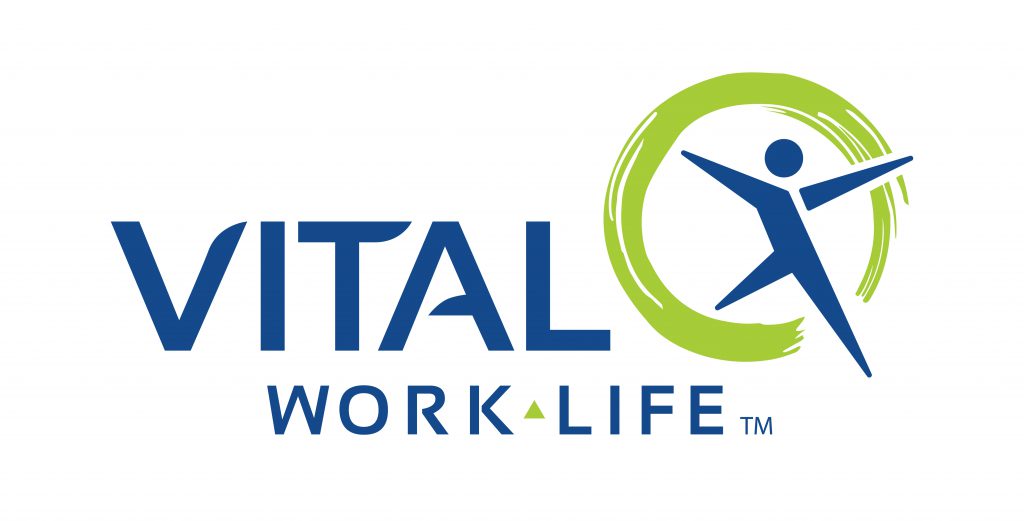| The federal health reform law faces an uncertain future after Republican Donald Trump’s stunning upset to become the next president of the United States, and Wisconsin Republican Senator Ron Johnson’s victory, helping Republicans maintain control of the U.S. Senate.
Trump, who carried Wisconsin, has called for repealing and replacing the law, allowing for the sale of health insurance across state borders and allowing families to deduct their health insurance premium payments from their taxes. He’s also called for more price transparency from healthcare providers, block granting Medicaid to states and removing barriers for drug manufacturers. Johnson, who defeated former Sen. Russ Feingold, called the law “a disaster,” at a debate in October. “The fact of the matter is thousands of Wisconsinites lost the health plans they could afford,” Johnson said. |
Schroeder to retire as CEO of Sauk Prairie Healthcare
Wisconsin Health News
Larry Schroeder will retire as CEO of Sauk Prairie Healthcare in January, according to a Monday statement.
Schroeder joined Sauk Prairie Healthcare in 1998 as chief operations officer and became CEO in April 2008. During his tenure, the health system built two new clinics, developed a new hospital and expanded surgeon and physician practices.
Sauk Prairie Healthcare will partner with an executive recruitment firm to conduct a nationwide search to replace Schroeder. Carol May, former chief financial officer, will serve as CEO in the interim.
Feingold, Johnson clash over health reform
Wisconsin Health News
Contenders for the U.S. Senate clashed over the federal health reform law Tuesday night.
Former Sen. Russ Feingold, D-Wis., called for building on the act, while current Sen. Ron Johnson, R-Wis., called for its repeal during a debate in Milwaukee hosted by Marquette University Law School and WISN-12.
Feingold said the law has helped 20 million people gain coverage. He added that it’s stopped insurers from denying coverage to those with pre-existing conditions and allowed children to stay on their parents’ health plans until they turned 26.
“Moving forward, yes, we have to work on a bipartisan basis to figure out how to make it better,” he said. As an example, he pointed toward fixing the family glitch, where eligibility for tax credits is based on an individual rather than family.
He also called for repealing the Cadillac Tax, addressing the rising cost of prescription medications and finding a way to control deductibles.
Johnson said the law was “a disaster” and that its supporters committed “massive consumer fraud.” He said the law has forced consumers off their health plans, failed to reduce premiums and caused people to lose their doctors.
“The fact of the matter is thousands of Wisconsinites lost the health plans they could afford,” Johnson said. He pointed to the elimination of the state’s high-risk pool, which he said led to 20,000 losing coverage.
Johnson said consumers should establish health savings accounts and be allowed to buy health plans across state lines. He also called for re-instating high-risk pools for those with pre-existing conditions.
The candidates also addressed the opioid epidemic. Feingold called for providing more resources to combat the epidemic and said pharmaceutical companies need to be held accountable.
Johnson said Congress provided money through the Comprehensive Addiction and Recovery Act. He said the federal government has been drafting rules to cut the connection between Medicare payments and questions about treating pain in a survey of consumers in part because of legislation he’s introduced.
Register now for Nov. 1 Hospital and Health System CEO Roundtable
Panelists:
- Damond Boatwright, Regional President of Hospital Operations, SSM Healthcare of Wisconsin
- Mark Herzog, President and CEO, Holy Family Memorial
- Matthew Heywood, President and CEO, Aspirus
The 2016 WHN Newsmaker Series is sponsored by:
AARP, Froedtert & the Medical College of Wisconsin,
Lawmakers unveil rural healthcare initiative
Wisconsin Health News
A group of Republican lawmakers plan to introduce a $3.5 million package of bills next session aimed at improving rural healthcare.
The bills, part of the Rural Wisconsin Initiative, would address projected workforce shortages by expanding training programs for healthcare professionals and wellness programs in rural areas.
“We know that medical professionals who have exposure to rotations in rural areas are more likely to stay in those areas,” Rep. Romaine Quinn, R-Rice Lake, said in a statement. “These bills will help ensure that we build on that reputation by encouraging young healthcare professionals to live, work and train in our rural communities.
One of the proposals would provide $250,000 annually over the next biennium to the Wisconsin Rural Physician Residency Assistance Program. The funding is aimed at OB-GYN and mental health residencies in northern Wisconsin,according to the lawmakers.
They also propose the creation of a $250,000 annual grant program that would be available to hospitals and other entities that form training consortia focused on allied health professionals like radiographers, physical therapists, nutritionists and others.
The lawmakers also encourage hospitals to partner with educational institutions to support advance practice clinicians. The package would establish a $750,000 annual grant program for establishing clinical training infrastructure in rural communities.
And the package would create a grant program to encourage the development of wellness facilities and programs in underserved areas. Grants would be limited to $250,000, and the state would award at least two to recipients that provide matching funds.
An additional $100,000 annual grant would go to the Wisconsin Hospital Association Foundation to increase participation by rural hospitals in quality improvement activities. And lawmakers are looking at legislation that will identify future workforce gaps through collecting better workforce data.
“Many rural areas of Wisconsin are facing increasing challenges as they strive to deliver high-quality, accessible healthcare, including attracting and retaining highly skilled healthcare professionals,” WHA CEO Eric Borgerding said in a statement. “Healthcare is a key factor in economic development across the state and is critically important for rural areas.”
“The best way to ensure access is to have these professionals trained in the same rural environments where they will practice,” said George Quinn, Wisconsin Council on Medical Education and Workforce executive director, in a statement.
Tim Size, executive director at the Rural Wisconsin Health Cooperative, said the package would accelerate what’s already happening in rural communities and expand best practices across the state.
“It’s seed money to help the development, help the expansion,” Size said, calling the initiative a “very important next step.”
He noted that health is only part of the Wisconsin Rural Initiative.
“The health of the community – education, jobs – you can’t separate them out,” he said. “It doesn’t any good to have great healthcare if there’s no jobs or education. We need all these pieces to be working together.”
Aurora ends collaboration with UW Cancer Center at ProHealth Care
Wisconsin Health News
Aurora Health Care has ended its partnership with the UW Cancer Center at ProHealth Care, representatives of the organizations confirmed Tuesday.
The three health systems, part of the statewide health network AboutHealth, were all collaborators on the cancer center in Pewaukee.
But Aurora spokeswoman Tami Kou said, “We discovered limitations and determined that our patients would be best served at their current locations.”
The split was first reported by the Milwaukee Business Journal late Monday.
Kou pointed toward other collaborations between ProHealth Care, including Aurora providing remote intensive care unit monitoring services for ProHealth Care’s Waukesha Memorial Hospital and Oconomowoc Memorial Hospital, which it started doing in June.
“While ProHealth Care and Aurora Health Care are working together in a number of ways, the two organizations mutually decided last year to maintain separate cancer programs in Waukesha County,” said Jeff Squire, chief corporate affairs officer at ProHealth Care.
UW Heath didn’t play a role in the decision, according to spokeswoman Lisa Brunette. She said Aurora’s decision to leave the cancer center wouldn’t have an impact on UW Health working with Aurora on pediatric cancer services in northeast Wisconsin.
Uncompensated care at Wisconsin hospitals declines by 30 percent
Wisconsin hospitals provided $918 million in uncompensated healthcare services to their patients in fiscal year 2015, a decrease of 29.8 percent from FY 2014, according to a new report from the Wisconsin Hospital Association.
The 149 hospitals included in the report provided $434.7 million in charity care and incurred $483.3 million in bad debt in FY 2015.
General medical surgical hospitals reported a 31.1 percent decrease in uncompensated care, while specialty facilities reported an increase of 19.1 percent.
Total uncompensated care declined to 1.9 percent of total gross patient revenue in FY 2015 from 3 percent the previous year.
The Wisconsin Hospital Association attributed the decline to the expansion of health insurance coverage under the federal health reform law. They also noted they’ve seen an increase in losses from Medicaid.
Wisconsin hospitals receive 65 percent of what it costs to provide care for patients enrolled through Medicaid, according to Brian Potter, WHA senior vice president. Losses increased to more than $1 billion in fiscal year 2015, up from $899 million the previous year.
Medicare losses also increased to more than $1.64 billion, an increase of $160 million from the previous year, according to Potter.
“As the population continues to age and new enrollees are added to the Medicare program, the impact of the underpayments will become more pronounced,” he said.
Potter also noted that hospitals reinvest in communities by working with community partners to address unmet health needs.
“Hospitals help create healthier communities, and ensure that people are able to participate fully in employment opportunities and care for their families,” he said in a statement. “Without the assistance of hospitals and health systems, services for this segment of our society would remain scarce and in many instances, local government entities would be responsible for meeting this need.”
Milwaukee hospitals accounted for about 26.2 percent, roughly $240.1 million, of overall uncompensated care in the state. Of the 149 hospitals in the report, 52 delivered more than $5 million in uncompensated care during FY 2015.
Hospitals provided uncompensated care to 1.6 million patients in FY 2015.
Read more.
Interstate compact licensure expected to go live in January
Wisconsin Health News
The chair of the state’s Medical Examining Board said last week that he expects doctors should be able to obtain a license under the interstate licensure compact in January.
“We want to be issuing the first licenses by Jan. 1,” said Dr. Kenneth Simons, who called it a conservative timeline. Simons serves as one of the state’s commissioners for the group developing the compact.
Register now for Oct. 18 Insurance CEO Roundtable
Join us for one of our most anticipated events of the year. Insurance leaders will discuss their industry’s most pressing issues during a roundtable discussion moderated by Wisconsin Health News Editor Tim Stumm.
Panelists:
- Sherry Husa, CEO, MHS Health Wisconsin
- Dustin Hinton, CEO, UnitedHealthcare Wisconsin
- Paul Nobile, President, Anthem Blue Cross and Blue Shield in Wisconsin
Register now to reserve your spot.
DHS requests $452 million increase for Medicaid in 2017-’19 biennium
Wisconsin Health News
The Department of Health Services is requesting an increase of $452 million in general purpose revenue for Medicaid in its 2017-’19 biennial budget request to the Department of Administration.
Secretary Linda Seemeyer wrote in the request sent Thursday to DOA that the department’s budget request that the increase in Medicaid funding is based on projected enrollment, costs per enrollee and other factors.
“While still a significant amount of funding, this increase is small by historical standards,” Seemeyer wrote, noting that the last three biennial budgets increased state spending in the program by $650 million, $685 million and $1.6 billion respectively.
Seemeyer also noted they expect the program to be below budget in the current biennium, with more than $260 million GPR expected to lapse into the state’s general fund at the end of fiscal year 2017. That lapse is separate from the department’s request for an increase.
“These slowing Medicaid growth rates reflect the success of Governor Walker’s entitlement reforms, efforts to improve health outcomes through better care coordination and initiatives to identify and eliminate waste, fraud and abuse,” she wrote. “They also result from improved oversight of managed care contracts and reforms enacted by the governor and Legislature.”











